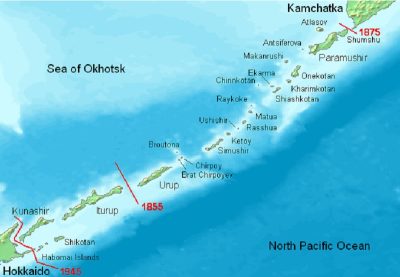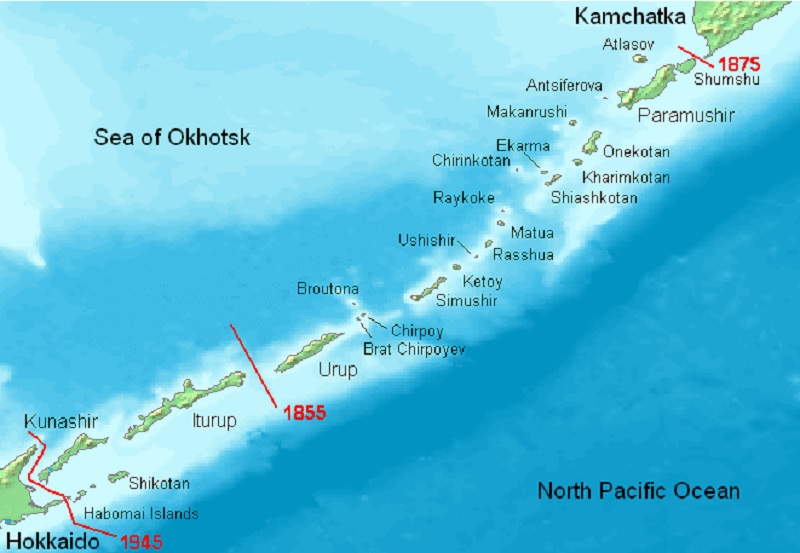Risking World War III: The US Submarine Lurking Off Russia’s Kuril Islands

All Global Research articles can be read in 51 languages by activating the “Translate Website” drop down menu on the top banner of our home page (Desktop version).
To receive Global Research’s Daily Newsletter (selected articles), click here.
Visit and follow us on Instagram at @globalresearch_crg.
***
Considering the fact that the incident took place near Urup and not near any of the Kuril Islands that Japan claims as its own, the US can’t plausibly claim that it was ‘operating safely in international waters’ since Russia’s writ over Urup is universally uncontested even by Tokyo.
The Russian Ministry of Defense claimed on Saturday that it employed “appropriate means” to chase away a US submarine that intruded in the country’s territorial waters near Urup (not to be confused with the island of Iturup that Japan claims as its own alongside several others), which is one of Russia’s Kuril Islands, and refused to surface after being demanded to do so. The US military attaché in Moscow was summoned to the Ministry of Defense where he was handed over a note. The Pentagon officially denied that the incident took place but wouldn’t comment on the location of its submarines, with a representative only saying that “we do fly, sail, and operate safely in international waters.” Kremlin aide Yuri Ushakov also said that Presidents Putin and Biden didn’t discuss the incident during Saturday’s call.
The conflicting narratives from each side prompted confusion about what really happened. It’s extremely unlikely that Russia would completely fabricate this incident and even go as far as summoning the US military attaché in Moscow if it was entirely made-up. This very strongly suggests that something really did happen even though the US would prefer to keep mum about it. It’s also a relief that there was no clash between these two nuclear superpowers’ forces, especially considering the extremely tense ties between them brought about by the undeclared US–provoked missile crisis in Europe. It would be inaccurate to describe this as a non-incident but it also wasn’t a crisis either, just a serious scandal. The US was very clearly trying to test the Russian Navy’s defenses in the Northern Pacific.
Considering the fact that the incident took place near Urup and not near any of the Kuril Islands that Japan claims as its own, the US can’t plausibly claim that it was “operating safely in international waters” since Russia’s writ over Urup is universally uncontested even by Tokyo. It’s curious to note that this happened the day after the US unveiled its latest Indo-Pacific strategy, suggesting that America was attempting to flex its muscles in Russia’s part of this bi-oceanic space but was humiliatingly caught doing so and subsequently chased away in shame. Since the incident wasn’t brought up during Saturday’s call between their leaders, it seems as though President Putin understood that it most likely wasn’t linked to their US-provoked tensions in Europe and hence thought not to discuss it.
All told, this scandal is worth discussing even if only to prove that the US will dangerously saber-rattle against Russia’s conventional forces even within its own maritime territory irrespective of the current tensions between them. This speaks to America’s arrogance, which is a holdover from its fading unipolar hegemony that US leaders still cling to in delusion. There is absolutely no way that Russia would ever accept any foreign military forces, let alone a US nuclear-powered submarine, intruding in its territory. The Russian Navy should be commended for promptly responding to this unprecedented provocation in the calmest but most professional way possible that avoided unnecessarily escalating the situation while the US should be harshly condemned for irresponsibly risking World War III.
*
Note to readers: Please click the share buttons above or below. Follow us on Instagram, @globalresearch_crg. Forward this article to your email lists. Crosspost on your blog site, internet forums. etc.
This article was originally published on OneWorld.


